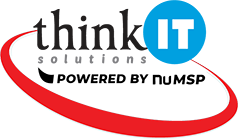Throughout 2016, we have not only witnessed a drastic increase in the number of ransomware cases, but also observed a significant progression in the sophistication and aggression of these types of hack attacks. In fact, today’s ransomware affects every computer in the system through encrypted files, local drives, backup drives, and any other resource a network may share. Hackers specify that the files will be locked until a ransom is paid- but this promise is not always kept!
According to James Trainor, FBI Cyber Division Director, ” Paying a ransom doesn’t guarantee an organization that it will get its data back – we’ve seen cases where organizations never got a decryption key after having paid the ransom. Paying a ransom not only emboldens current cyber criminals to target more organizations, it also offers an incentive for other criminals to get involved in this type of illegal activity. And finally, by paying a ransom, an organization might inadvertently be funding other illicit activity associated with criminals.”
Rather than pay a ransom and provide criminals with a motive to continue hacking, it’s important to secure your company’s network. Here are five ways how:
5 Ways to Secure your Company’s Network
- Back up your data regularly: You should make sure that each back up location, stored on a different Wi-Fi network, is secured and verified. According to the Federal Communications Network, there are six important steps to securing your wireless network, such as: turning your encryption on, enabling Firewall, changing default passwords, and turning off all Wi-Fi systems when you leave the office. For more information on how to back up and secure your Wi-Fi network, visit “Protecting Your Wireless Network”.
- Disable macro scripts from files sent via email: One of the newest forms of ransomware involves a destructive macro, which can either spread a virus or lock a computer’s files if the email is opened. To prevent this form of data breach, disable the macro scripts in the Trust Center of Office Programs.
- Manage the use of privileged accounts: A user should only be given administrative access if and when it is absolutely necessary. These access controls are an easy way for hackers to begin encrypting files and local drives.
- Ensure that all antivirus and anti-malware solutions are set to automatically update: In most cases, antivirus and anti-malware solutions are already installed onto your computer when you purchase it. Without a regular update, however, these solutions are completely useless. You can make sure the “automatic update” option is checked in the Control Panel of your computer.



 (8 votes, average: 4.50 out of 5)
(8 votes, average: 4.50 out of 5)